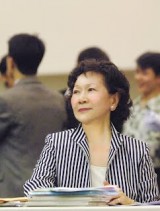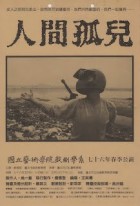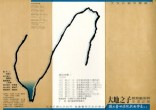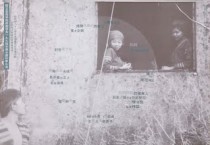|
 Chi-Mei Wang was born in 1946. Upon graduating from Taipei First Girls’ High School, she began studying in the Department of Chinese Literature at National Taiwan University. After the completion of her degree in 1968, she entered her first job as a junior high school teacher but soon after left to study for an M.A. in theatre at the University of Oregon in the United States. During her time there, she studied many aspects of theatre including performance, directing, design, production and education, as well as acting as a director and writer for the school’s drama club. In 1976 she returned to Taiwan, teaching at Chinese Culture University and acting as a director for the Music Department’s opera performances as well as directing all other kinds of productions and performances. At the same time, she coordinated with other like-minded colleagues to establish an artisan workshop while concurrently founding the Taipei Pantomime Company to promote the research and understanding of the culture and language of the deaf. Additionally, due to her involvement with Chinese Culture University’s Chinese opera group, she had the chance to learn from Liyuan opera masters, gaining insightful knowledge about the movement and musicality of Chinese opera. Because of this experience, she developed a deep and solid understanding of how to direct, write and perform classical and folk stories.
Chi-Mei Wang was born in 1946. Upon graduating from Taipei First Girls’ High School, she began studying in the Department of Chinese Literature at National Taiwan University. After the completion of her degree in 1968, she entered her first job as a junior high school teacher but soon after left to study for an M.A. in theatre at the University of Oregon in the United States. During her time there, she studied many aspects of theatre including performance, directing, design, production and education, as well as acting as a director and writer for the school’s drama club. In 1976 she returned to Taiwan, teaching at Chinese Culture University and acting as a director for the Music Department’s opera performances as well as directing all other kinds of productions and performances. At the same time, she coordinated with other like-minded colleagues to establish an artisan workshop while concurrently founding the Taipei Pantomime Company to promote the research and understanding of the culture and language of the deaf. Additionally, due to her involvement with Chinese Culture University’s Chinese opera group, she had the chance to learn from Liyuan opera masters, gaining insightful knowledge about the movement and musicality of Chinese opera. Because of this experience, she developed a deep and solid understanding of how to direct, write and perform classical and folk stories.
In 1979, Wang became involved in the preparations for the new National Institute of the Arts, acting as the section chief of the secretary division. She provided assistance to the school’s president Mr. Bao You-Yu as well as important members of the music, fine arts, dance and theatre groups, in completing the school’s founding. She taught at the Institute from 1981 until 1999, when she was offered a teaching post in the Chinese literature department at National Cheng Kung University in Tainan. In 2005 she retired from teaching, but she still remains a leader for young people in the theatre and continues to engage in theatre production and promotion.
Wang believes: We should perform our own plays, create as much as possible, and push for local works. For the last twenty-plus years she has invested a huge amount of energy compiling and producing publications of small and large collections of Taiwanese theatre pieces. Moreover, her own creative pieces fully reveal her profound observations about the land, the environment, and vulnerable communities involved in “human” survival. For example, in 1987 her “The Orphan of the World” was a comparison of the past and the present, reflecting young intellectuals’ criticisms and musings. In 1989, “Children of the Good Earth” described the experiences, thoughts, and passions of Taiwan’s rural youth. 1994’s “Tales of the Mountains and the Seas” was the result of leading students in intimately lessons about aborigine culture, song, and dance. And starting in 2004, she began going onstage herself. She even performed a one-woman show, Xiexue Hong, in 2010. All of these pieces reflected her meticulous and mature performance skills in interpreting the modern female character. She was arousing people’s awareness toward the struggles and imaginative powers in the lives of these characters, providing a staged testimony of every aspect of Taiwanese society, government, and artistic history.
Following the National Arts Award she received in 1988 and the WuSanLien Award in 1993, Wang was given the 13th annual Laiho Literature Award in 2004. At the time, the award panel judges noted that the reason she won the award was because, “She has been cultivating Taiwanese theatre for many years. Theatre has been her tool to transform and improve social culture; she simultaneously respects the past and blazes new trails, using an adept nature and a timely spirit.” With regards to Wang, this description is quite true; in the annals of Taiwanese theatre development, she is an indispensable figure.
Play Title: The Orphan of the World (May 30, 1987)
 “The Orphan of the World” is made up of over twenty vignettes. The play does not center around one single event or character but is a history of Taiwan and an observational report on society mixed with a method of satirical criticism to give an account of the concern and worry young people have towards Taiwan. At the curtain’s rise, a group of actors playing private school children stand at stage right with their backs to the audience reciting from Confucius’ “Three Character Classic” and the history textbook “A Comprehensive History of Taiwan.” At the same time, four modern young people stand at the center of the stage taking turns rebuking Taiwan while at stage left a female actor wearing a white tennis polo (to represent western culture) plays tennis as she simultaneously lists one by one all of the accomplishments of western civilization in English. The three different spaces are concurrently interjecting. The school children role play the history of Taiwan during the Qing Dynasty, acting out the meeting between Hsien-Tang Lin (林獻堂) and Qi-Chao Liang (梁啟超). Qi-Chao Liang says that the Qing Dynasty doesn’t have the power to save Taiwan and that it wants Taiwan to use non-violent methods to protest the Japanese occupation. The school children continue to talk about Taiwanese history through to the end of Japanese rule on the island. In one section: Western cigarettes are thrown everywhere, children start to learn English and think that studying abroad is better than studying in Taiwan. Later they perform “Castrated Chicken,” a Japanese occupation-era play that is accompanied by all-Taiwanese ballads. In the middle of the performance, the power goes out and the audience uses flashlights to watch the performance. The next day, however, they are barred from using the music and Taiwanese ballads are banned from use in any other plays. During the renovation of Love River, the budget reports from Taiwanese government administrators are corrupted and the Keelung River is full of piles of everyone’s refuse. One by one, everyone also throws all their garbage onto the stage; every shape and size of garbage and cloth scraps are left on the stage. Finally, the actors play the role of garbage collectors and clean the stage of all its mess. They attempt to end the final scene in the same manner as the first act by reciting the idiom “Dancing in the ocean, the beautiful island,” but find they have no voices with which to speak.
“The Orphan of the World” is made up of over twenty vignettes. The play does not center around one single event or character but is a history of Taiwan and an observational report on society mixed with a method of satirical criticism to give an account of the concern and worry young people have towards Taiwan. At the curtain’s rise, a group of actors playing private school children stand at stage right with their backs to the audience reciting from Confucius’ “Three Character Classic” and the history textbook “A Comprehensive History of Taiwan.” At the same time, four modern young people stand at the center of the stage taking turns rebuking Taiwan while at stage left a female actor wearing a white tennis polo (to represent western culture) plays tennis as she simultaneously lists one by one all of the accomplishments of western civilization in English. The three different spaces are concurrently interjecting. The school children role play the history of Taiwan during the Qing Dynasty, acting out the meeting between Hsien-Tang Lin (林獻堂) and Qi-Chao Liang (梁啟超). Qi-Chao Liang says that the Qing Dynasty doesn’t have the power to save Taiwan and that it wants Taiwan to use non-violent methods to protest the Japanese occupation. The school children continue to talk about Taiwanese history through to the end of Japanese rule on the island. In one section: Western cigarettes are thrown everywhere, children start to learn English and think that studying abroad is better than studying in Taiwan. Later they perform “Castrated Chicken,” a Japanese occupation-era play that is accompanied by all-Taiwanese ballads. In the middle of the performance, the power goes out and the audience uses flashlights to watch the performance. The next day, however, they are barred from using the music and Taiwanese ballads are banned from use in any other plays. During the renovation of Love River, the budget reports from Taiwanese government administrators are corrupted and the Keelung River is full of piles of everyone’s refuse. One by one, everyone also throws all their garbage onto the stage; every shape and size of garbage and cloth scraps are left on the stage. Finally, the actors play the role of garbage collectors and clean the stage of all its mess. They attempt to end the final scene in the same manner as the first act by reciting the idiom “Dancing in the ocean, the beautiful island,” but find they have no voices with which to speak.
Play Title: Children of the Good Earth (May 18, 1989)
 Three aviators are flying a futuristic flying ship to collect the world’s air and arrive in Taiwan. One of the aviators happens to be from Taiwan and wants to investigate whether the pollution in his homeland is getting worse. Suddenly there’s a systems failure and they must make an emergency landing in Féitǔ Township (In Mandarin Chinese, féi 肥 means fertile and tǔ 土 means land). During a small earthquake that follows, Ke-jiu Hua (花可久) sticks her head out from under a large cape she is wearing and explains that her hometown Féitǔ wasn’t always the way it is now. The older generations dispute its origins: is it Fēitǔ (here fēi飛 means flying, so the name becomes Flying Land)? Or, is it Féitǔ (Fertile Land)? Ke-jiu Hua carries her backpack and heads to her elementary school. Due to different family background, resulting in different views on education and life, Ke-jiu’s classmates all have their own life stories. Upon graduation from junior high school, everyone has to choose whether to continue studying or to start working immediately. At the same time, Féitǔ is going through some changes. Because of the land’s fertility, the crops in Féitǔ develop and grow quickly; and Féitǔ grows quickly along with them. However, people soon discover that the fertilized land actually contains a poisonous gene; hence Féitǔ begins its steep decline. Its residents start to move away and education encounters more and more problems. Ke-jiu Hua wanders around the town until she discovers, trapped in the earthquake rubble, her old teacher along with one of her old classmates who has stayed in Féitǔ to teach. At this moment, all of her old classmates show up in the town to check for the earthquake’s damages. Everyone begins to talk about the old days and sing a song from the elementary school days, “If I open the window of my heart” (阮若打開心裡的窗).
Three aviators are flying a futuristic flying ship to collect the world’s air and arrive in Taiwan. One of the aviators happens to be from Taiwan and wants to investigate whether the pollution in his homeland is getting worse. Suddenly there’s a systems failure and they must make an emergency landing in Féitǔ Township (In Mandarin Chinese, féi 肥 means fertile and tǔ 土 means land). During a small earthquake that follows, Ke-jiu Hua (花可久) sticks her head out from under a large cape she is wearing and explains that her hometown Féitǔ wasn’t always the way it is now. The older generations dispute its origins: is it Fēitǔ (here fēi飛 means flying, so the name becomes Flying Land)? Or, is it Féitǔ (Fertile Land)? Ke-jiu Hua carries her backpack and heads to her elementary school. Due to different family background, resulting in different views on education and life, Ke-jiu’s classmates all have their own life stories. Upon graduation from junior high school, everyone has to choose whether to continue studying or to start working immediately. At the same time, Féitǔ is going through some changes. Because of the land’s fertility, the crops in Féitǔ develop and grow quickly; and Féitǔ grows quickly along with them. However, people soon discover that the fertilized land actually contains a poisonous gene; hence Féitǔ begins its steep decline. Its residents start to move away and education encounters more and more problems. Ke-jiu Hua wanders around the town until she discovers, trapped in the earthquake rubble, her old teacher along with one of her old classmates who has stayed in Féitǔ to teach. At this moment, all of her old classmates show up in the town to check for the earthquake’s damages. Everyone begins to talk about the old days and sing a song from the elementary school days, “If I open the window of my heart” (阮若打開心裡的窗).
Play title: Tales of the Mountains and the Seas (November 25, 1994)
 This play was created by selecting and tying together more than twenty legends and myths from various aboriginal tribes of Taiwan. The play does not just include creation myths, interpretations of the beginning of life, but also systematically chains together fascinating myths from the Tao, Paiwan, Tsou and Rukai tribes to become a story of “the never-ending circle of life.” Whether using primitive natural legends of stones, maple leaves, or bamboo, or even tales of love between gods and human, the stories’ songs and dances explain in a simple way the emotions of primitive living. All of this becomes the first section of the play: praise and interpretation of “life.” Following this are stories about gods crossing over into the world of humans, such as the theft of the millet seeds, the legend of the shark’s wife, birds and mice, the story of the anteater and the monkey. These stories all include faint metaphors of animals as people and interpret the hardships of cultural development of the early peoples. The family relationships, the dialogue between anthropomorphized animals, procreation and mysterious stories about witchcraft, and the survival and conflicts between tribes were performed on a circular stage. All of these elements combined to express an honest reflection on aboriginal culture. Extraordinary charm and romance are held within this simplicity, making the stories permeate pure beauty and touching original wisdom.
This play was created by selecting and tying together more than twenty legends and myths from various aboriginal tribes of Taiwan. The play does not just include creation myths, interpretations of the beginning of life, but also systematically chains together fascinating myths from the Tao, Paiwan, Tsou and Rukai tribes to become a story of “the never-ending circle of life.” Whether using primitive natural legends of stones, maple leaves, or bamboo, or even tales of love between gods and human, the stories’ songs and dances explain in a simple way the emotions of primitive living. All of this becomes the first section of the play: praise and interpretation of “life.” Following this are stories about gods crossing over into the world of humans, such as the theft of the millet seeds, the legend of the shark’s wife, birds and mice, the story of the anteater and the monkey. These stories all include faint metaphors of animals as people and interpret the hardships of cultural development of the early peoples. The family relationships, the dialogue between anthropomorphized animals, procreation and mysterious stories about witchcraft, and the survival and conflicts between tribes were performed on a circular stage. All of these elements combined to express an honest reflection on aboriginal culture. Extraordinary charm and romance are held within this simplicity, making the stories permeate pure beauty and touching original wisdom.
Play title: Remember Hong Kong (May 16, 1997)
 This play was adapted from Shu-Qing Shi’s novel “Hong Kong Trilogy.” It follows the memories of the main character De-Yun Huang (黃得雲) and her descendants, creating a complete narration of the 100-year rise and fall of Hong Kong, the loves and complaints of the people of Hong Kong, and the changing human world. In her childhood, De-Yun, whose stage name is Butterfly, was kidnapped and taken to Hong Kong to become a prostitute. In the beginning, she serves westerners living in Hong Kong, later falling in love with Adam Smith, one of the British government officials ruling Hong Kong. But the white Briton only considers De-Yun a toy, someone to help him relieve his lonely desires while living his youthful years abroad. For him, love does not exist, and so in the end he abandons De-Yun. She then begins a relationship with Smith’s servant, a Chinese man named Ya-Bing Qu (屈亞炳), but men continue to abandon her one by one. Her heart is also wrapped up with another matter: her desire for Xia-Hun Jiang (姜俠魂), who plays the role of a “conquering tiger” hero in Cantonese operas. In this era of great change, De-Yun finally decides to run away with Xia-Hun; however, she soon discovers that he has already left with the entire opera troupe. Inquiries into his whereabouts turn up different answers. Some say he ran off to join the revolution, others say he left to become pirate. In the end, she realizes that it was too difficult for him to settle down with her. Afterwards, De-Yun decides to stay in Hong Kong, raising her illegitimate mixed-race child, Richard. She is able to use her linguistic skills and wiles to accumulate great assets and wealth through real estate speculation. In the twentieth century, in the same era when her grandson William is born, De-Yun builds a house compound “Cloud Garden” with an English gentleman banker Sean Schiller. However, it is not until the Japanese occupation period, with Schiller’s death in a concentration camp, when De-Yun at last admits her love for Schiller. She is sixty years old when he dies; shortly after she disappears from the world too. Later, Richard, William, De-Yun’s great-granddaughter Die-Niang, and many people in Hong Kong depict their responses and internal feelings towards the conflicts and changes of the past fifty years.
This play was adapted from Shu-Qing Shi’s novel “Hong Kong Trilogy.” It follows the memories of the main character De-Yun Huang (黃得雲) and her descendants, creating a complete narration of the 100-year rise and fall of Hong Kong, the loves and complaints of the people of Hong Kong, and the changing human world. In her childhood, De-Yun, whose stage name is Butterfly, was kidnapped and taken to Hong Kong to become a prostitute. In the beginning, she serves westerners living in Hong Kong, later falling in love with Adam Smith, one of the British government officials ruling Hong Kong. But the white Briton only considers De-Yun a toy, someone to help him relieve his lonely desires while living his youthful years abroad. For him, love does not exist, and so in the end he abandons De-Yun. She then begins a relationship with Smith’s servant, a Chinese man named Ya-Bing Qu (屈亞炳), but men continue to abandon her one by one. Her heart is also wrapped up with another matter: her desire for Xia-Hun Jiang (姜俠魂), who plays the role of a “conquering tiger” hero in Cantonese operas. In this era of great change, De-Yun finally decides to run away with Xia-Hun; however, she soon discovers that he has already left with the entire opera troupe. Inquiries into his whereabouts turn up different answers. Some say he ran off to join the revolution, others say he left to become pirate. In the end, she realizes that it was too difficult for him to settle down with her. Afterwards, De-Yun decides to stay in Hong Kong, raising her illegitimate mixed-race child, Richard. She is able to use her linguistic skills and wiles to accumulate great assets and wealth through real estate speculation. In the twentieth century, in the same era when her grandson William is born, De-Yun builds a house compound “Cloud Garden” with an English gentleman banker Sean Schiller. However, it is not until the Japanese occupation period, with Schiller’s death in a concentration camp, when De-Yun at last admits her love for Schiller. She is sixty years old when he dies; shortly after she disappears from the world too. Later, Richard, William, De-Yun’s great-granddaughter Die-Niang, and many people in Hong Kong depict their responses and internal feelings towards the conflicts and changes of the past fifty years.
Text and images are provided by Digital Collection of Originality in Theatre of Yi-Wei Yao, Chi-Mei Wang and Stan Lai and School of Theatre Arts, Taipei National University of the Arts
|

















